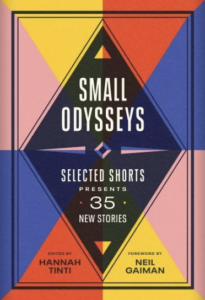Aimee Bender on Writing Without a Plan
“Every book is the wreck of a perfect idea.”
When I was in graduate school for my MFA, I had lunch with my friend John, who was studying industrial psychology across campus. He was telling me how he liked writing, but he had a real block because it never came out on the page how it felt in his mind, and he just couldn’t stand the gap between the two.
I didn’t know what to say or even have a way to think about it clearly. I didn’t know, yet, that Iris Murdoch had already said it best: “Every book is the wreck of a perfect idea.”
Not just some books. Every book. And by extension, every piece of art.
That lunch has stayed with me, and I have heard many versions of the same thought in my office hours—a student in a swivel chair with a face of profound frustration and disappointment when the concept or premise in their mind doesn’t look as good as they’d hoped when it shows up on the page.
The act of writing is how I get access to the material I might not readily know about.But there is a very important implication worth examining that is tucked inside his statement, upon which it rests: if the thing on the page does not match the thing in the mind, then there must be an actual thing in the mind that is perfect and whole. What appears the page, then, is just a weak, disappointing copy.
But is there any such thing in the mind? Is it even a thing?
Soon after that lunch, I felt myself struggling with a novel that I later drawered (and later than that, pillaged). I wrote a sign on a piece of printer paper with a Sharpie and stuck it above my computer that said: There is no book in your mind.
What I wanted to tell myself, and to tell John, and what I would learn in the future from Iris Murdoch, was just that: There isn’t necessarily a perfect image or story or moment you are transmitting to the page. I kept trying to force that novel into a shape I had imagined for it, and it simply didn’t work. Some people, of course, can work this way, must have an unusual clarity of mind that allows for the ability to transfer exactly what’s in there; Nobel Prize winner José Saramago called his characters “pawns,” and the marvelous Rachel Cusk says she has the writing mostly worked out before she sits down to set the technique in place. We get to reap the rewards of this capacity, but there are many others of us who find this idea totally incomprehensible, including luminary writers such as Annie Dillard and Zadie Smith and Donald Barthelme, who talk very directly about the value of sitting down to write, open and empty, not knowing.
For me, the page is all I get, and the page is what makes the soup of the mind into something tangible. If there is no book in my mind, then the only way I can find a book is by writing it. This act of writing is how I get access to the material I might not readily know about. We cannot read each other’s minds, and the truth is, we often cannot really read our own.
There’s something sad in this—that we cannot replicate our idea, our perfect, imagined book in there, our brilliant ideas that seem so full and glorious when walking past the autumn leaves. But the amazing side, the truly amazing side, is that we might write something else, something surprising.
__________________________________

Small Odysseys: Selected Shorts Presents 35 New Stories is available via Algonquin Books.




















